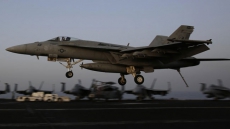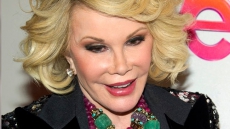Arab League Secretary General Nabil el-Arabi Saturday said his meeting with visiting US Secretary of State John Kerry focused on means to face terrorism, ending the Arab-Israeli conflict and the situation in Libya.
Speaking after the meeting Saturday, Arabi said he explained to Kerry a decision taken by the Arab Foreign Ministers' Council last week on the need to make all-out efforts to counter challenges and extremism in the Arab world politically, militarily, culturally, intellectually, economically and judicially, state-run MENA news agency reported.
He said he touched on the Arab-Israeli conflict and Palestinian President Mahmoud Abbas' endeavours to reach a solution to the Palestinian-Israeli crisis.
During a visit in March to Cairo, Kerry had pledged to end the conflict within months but nothing has happened so far, Arabi said.
Kerry stressed he was in constant contact with both the Israeli and Palestinian sides, the Arab League chief said.
The meeting also took up the situation in Libya, he said.
Earlier, John Kerry arrived in the Egyptian capital Saturday in a bid to build up a coalition to counter and defeat the Islamic State (IS) terrorist group, Xinhua reported.
The visit is the latest leg of his Middle East tour that has taken him to Iraq, Jordan, Saudi Arabia and Turkey.
Before his arrival, the top US diplomat managed to secure the support of 10 Arab nations for a global drive to clamp down on the terrorist group.
At a conference in Jeddah Thursday, Bahrain, Egypt, Iraq, Jordan, Kuwait, Lebanon, Oman, Qatar, Saudi Arabia and the United Arab Emirates pledged to "do their share" in the global fight against IS militants.
However, Kerry ruled out the possibility of including Iran in the coalition, saying it was "not appropriate" for Tehran to join talks on combating IS militants.
He also said it was "premature" to say what tasks individual coalition partners would have to perform.
In Cairo, apart from al-Arabi, Kerry will also hold talks with Egyptian President Abdel-Fattah al-Sisi, his Egyptian counterpart Sameh Shoukry, as well as other senior Egyptian officials Saturday over "bilateral ties and regional issues of mutual concern", according to a foreign ministry statement.





